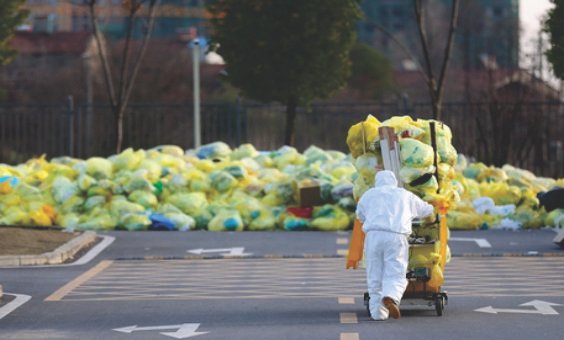Regarded as one of the most challenging crisis since the WWII, coronavirus pandemic has thrown the global economy into a deeper decline, crippled manufacturing, shut factories, and upended supply chains. But there is a greater threat on the horizon.
While countries are grappling with skyrocketing number of covid-19 positive cases and the tremendous pressure on healthcare systems, a subtle problem has been lurking in the background. Plastic items are experiencing a sudden resurgence as they are proving to be the most reliable and affordable solutions for personal protection.
In 2018, UN recognized plastic pollution as a global crisis. 2020 was deemed to be the banner year when countries were to unite to make an ultimate shift away from plastic. Countries had pledged the introduction of new bans while scientists and activists were pushing for positive environmental changes. Businesses were preparing for the end of the plastic era and facilitating steps towards an accelerated transition to a circular economy.
“Coronavirus outbreak disrupted the entire scheme by posing difficult short-term choices between public health and the environment.”
The elimination of single-use plastic is becoming next to impossible as the workers in the plastic industry work tirelessly to provide essentials at the frontlines – components for critical care machines, disposable personal protective equipment, single-use packaging for food, and other items required to maintain hygiene, health, and safety.
Sadly, in the absence of general public awareness, the personal protective equipment is being discarded in a very careless manner. When it is thrown away in public areas, this material ends up clogging the side-walks, choking the drains along the road, and finally reaching the waterways. Marine plastic debris stay in the water for much longer (sometimes even decades) – thus adversely affecting the marine life and eco-system.
Most of the plastic being employed in the healthcare industry is believed to be unfit for recycling for fear of being a potential biohazard. A similar situation is set to arise in the food industry, which was previously taking major steps to limit reusables. Owing to our increased reliance on plastic products, an unprecedented growth of plastic waste is imminent. The waste management and recycling sector is required to step up to the occasion and help effectively handle the massive volume of post-pandemic plastic.
Now more than ever, it has become imperative that we make it our collective mission to encourage the development of a circular economy and try to eliminate waste through active reuse of resources. In order to deal with such a large global influx of plastic waste, recycling industry will have to scale up capacity. At the same time, governments will need to focus on introducing relevant policies, regulation, enforcement, and broad public awareness. Sustainable medical waste management is the need of the hour, and the world needs to wake up to it and unite on the agenda of effective recycling of plastic waste to protect our planet.



